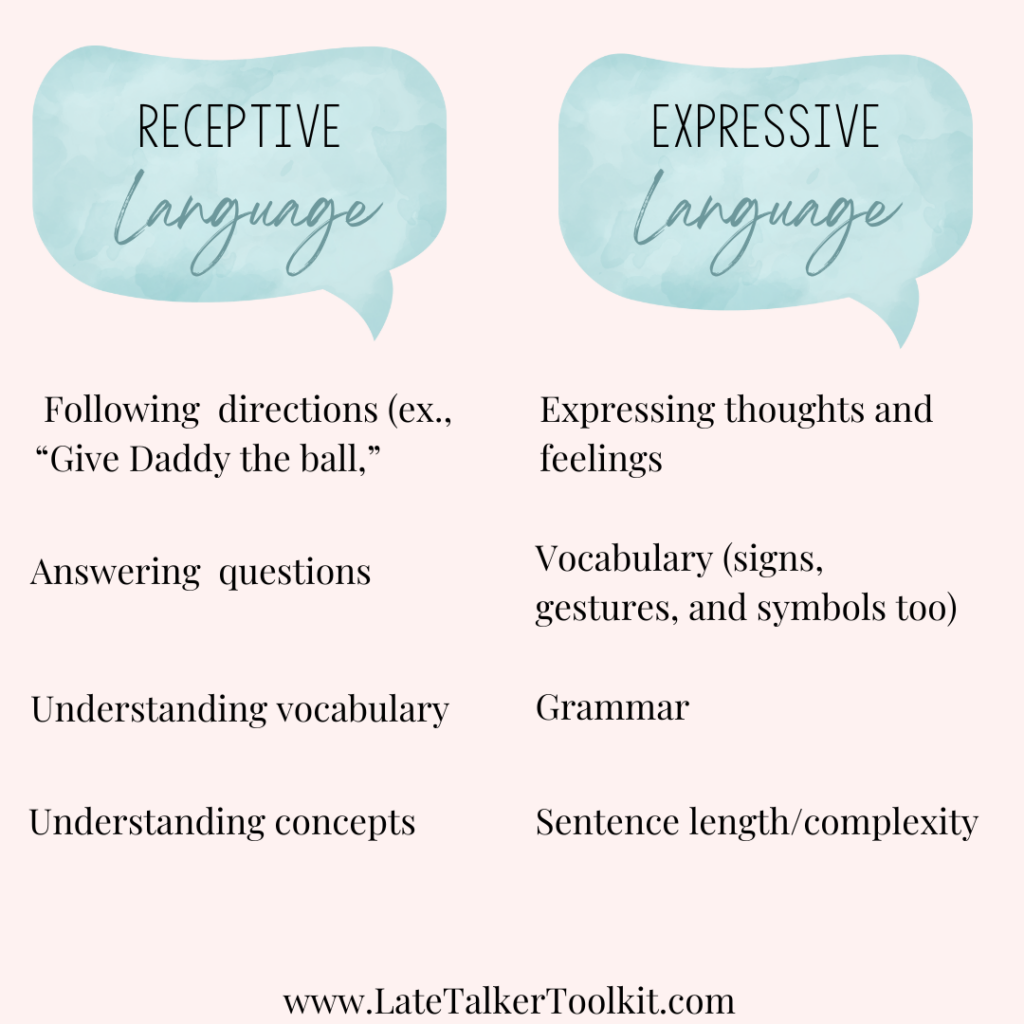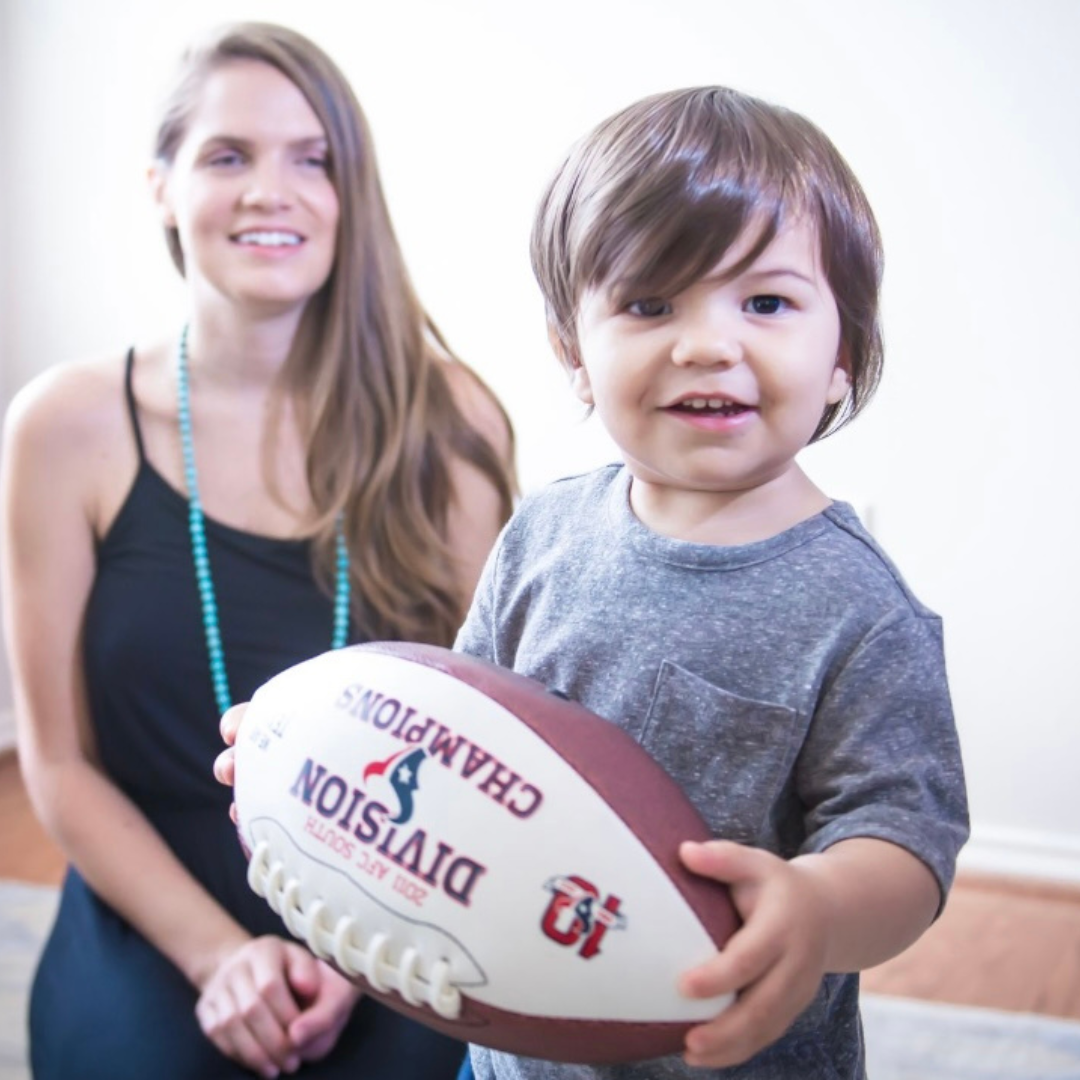
What is Expressive Language?
Receptive Language has to do with our understanding of language. It’s skills like understanding vocabulary, following directions, and understanding concepts
Expressive Language has to do with how we express ourselves with language. It includes things like how many words we say, how we put words together, and how we use grammar.

Expressive Language Delay
“Late-Talkers” (toddlers with an Expressive Language Delay) have specific difficulty with expressive language or spoken language. That’s why we see a gap between what they understand and what they say. When I do a Late-Talker Evaluation, I see a discrepancy in scores between what they are understanding and what they are saying. Late-Talkers are on track with all of their developmental milestones except for the words they are saying. This is different than a child that is having difficulty understanding language or a child with a Developmental Delay.
How Many Words Should My Toddler Say?
18 month olds should use least 20 words, including different types of words, such as nouns (“baby”, “cookie”), verbs (“eat”, “go”), prepositions (“up”, “down”), adjectives (“hot”, “sleepy”), and social words (“hi”, “bye”)
24 month olds should use at least 100 words and combine 2 words together. These word combinations should be generated by the child, and not be combinations that are “memorized chunks” of language, such as “thank you”, “bye bye”, “all gone”, or “What’s that?”. Examples of true word combinations would be “doggie gone”, “eat cookie”, or “dirty hands”.
Source: The Hanen Center

Won’t They Grow Out of It?”
While many children do “grow out of it” and are considered “late bloomers,” many do not. We know
that about 20-30% of Late Talkers will continue to have difficulty with language. There are several risk factors that suggest a child is more likely to have difficulty with language, such as difficulty with reading and writing when they enter school (Olswang et. al, 1998). They are:
- Uses few gestures to communicate
- Uses mostly nouns (names of people, places, things), and few action words
- Difficulty playing with peers (social skills)
- Family history of communication delay, learning or academic difficulties
- Mild comprehension (understanding) delay for his or her age
- Quiet as an infant; little babbling
- History of ear infections
- Limited number of consonant sounds (p, b, m, t, d, n, y, k, g, etc.)
- Does not link pretend ideas and actions together while playing
- Does not imitate (copy) words
What Can I Do to Help My Toddler Right Now?
- Consult with a Speech Pathologist. It’s never too early to be proactive.
- Have your child’s hearing tested to make sure they are hearing speech sounds
- There are simple strategies you can start using right at home! My Free Late-Talker Guide has 5 strategies you can start using right away and my course for parents, The Late-Talker Toolkit, shows you exactly how to implement 10 research backed strategies specifically for toddlers an expressive speech delay at home.






